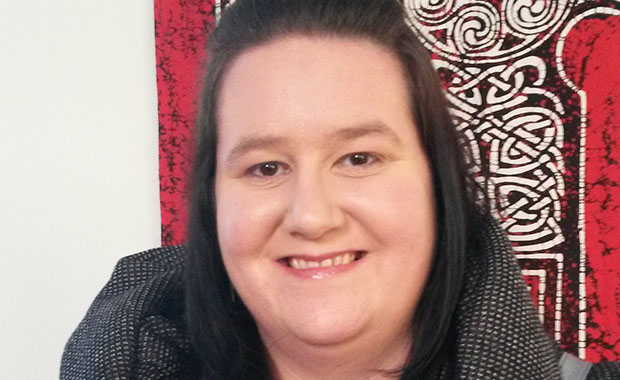Past content
Tomorrow's Calling
Being a minister is one of the most challenging, yet rewarding jobs in Scotland. It requires leadership, resilience, compassion and energy… and that's just for starters. The role of parish minister is at the very heart of Scotland's communities and central to the Kirk's 1,400 congregations.
The Tomorrow's Calling website provides detailed information about what to expect during training for ministry and helpful advice for individuals exploring their calling to serve God. The site also features a wide range of first-hand accounts from front-line Church of Scotland ministers who talk about their own calling and experiences as parish ministers and chaplains to communities across Scotland.

Rev Tommy MacNeil
Martins Memorial in Stornoway
"I would have done anything to be honest, other than be a minister, but God made it very clear that's what he wanted from me. I knew it would be demanding. I'm on call 24/7. Although it's challenging, the more you give to people the more you see the beauty and diversity of life. You never lose from that."

Rev Michael Mair
St David's Broomhouse in Edinburgh
"Being a minister is a phenomenal role to play in the community. You get to journey with people through the highs and lows of life. There's nothing else like it."

Rev Stella Campbell
Skene Church in Aberdeenshire
"If you feel a sense of calling in your heart you can't run away from it."
The Church of Scotland is actively looking for the next generation of parish ministers. We seek men and women of all ages who feel called to serve the church and are considering entering our comprehensive ordained ministry programme.
You will find a handy FAQs about training for ministry on the Tomorrow's Calling website. If you do not find the answers you are looking or require more information, please get in touch directly at vocations@churchofscotland.org.uk
Vocations Information Day
A starting point is our Vocations information day, at which attendance is required before you can apply for our Discernment process. The next Vocations Conference is 9th February 2019 at the St John's Episcopal Church, Princes Street, Edinburgh EH2 4BJ. You can find out more and book a place by downloading and completing our conference registration.
Further Information
You can find out more about the role of Ministries in the Church and about the Discernment Process. We have created a visualisation of the discernment process.
Find out what kind of people become ministers by viewing our minister profiles.
What kind of people become ministers
All sorts of very different people are selected and trained for ministry in the Church of Scotland. Read some of their stories below.

Cheryl McKellar Young
Cheryl first sensed a call while living the dream life abroad
Read Cheryl's story
Lynsey Brennan
Within months of becoming a Christian, Lynsey felt a call to ministry
Read Lynsey's story
Rhona McDonald
Rhona's job in a supermarket seemed perfect. But God had other ideas
Read Rhona's story
Scott McRoberts
Scott studied divinity, but he didn't see it necessarily leading to a dog collar.
Read Scott's storyAndrew Kimmitt
Andrew finally found a way to explore the 'Big Questions' that really interested him…
Read Andrew's story
Vocations Network
If you are sensing a call to serve in the Church of Scotland, a member of the Vocations Network can help to advise you on the next steps. Please contact ministry@churchofscotland.org.uk for further information or to be put in touch with a local Network member.
Vocations Information Day
Exploring your call to serve God? Think training for ministry could be for you?
Your next step is to apply to attend a Vocations Information Day, which provides an opportunity to meet like-minded people and to learn a bit more about the different forms of ministry.
Experts from the Church of Scotland (our trainers, ministers and council staff) will tell you more about discernment, assessment and training for ministry. They'll talk about life and work as a full time ordained minister, a deacon, an Ordained Local Minister and a Reader. You'll also have the opportunity for a one-to-one over coffee with one of our experts to talk confidentially about your personal situation.
We usually hold two Vocations Information Days annually.
Vocations Information Day attendance is necessary to go forward and take part in the Discernment process. Vocations Information Days are open for anyone to attend, regardless of their length of membership of the Church of Scotland.
To help you understand the journey towards Ministry, we've created a handy at-a-glance guide to all the stages in training for ministry from exploring your calling to Vocations Information Day, Discernment, Study and Work Experience.
This Conference offers an inspirational keynote speech on the Call to Serve Today, practical information and the opportunity to ask important questions about how God might be calling you.
Discernment and Assessment
The call to ministry
The Discernment Process is designed for those who sense a call to any of the ministries of the Church of Scotland.
Discernment process
Applicants who have attended a Vocations Information Day will be invited to complete an online screening questionnaire. Following the questionnaire, should the applicant be allowed to continue in the process, the Church will set up a placement for the applicant to embark on the Discernment Process.
During the Discernment Process applicants:
- Will be assigned a Mentor and Presbytery Assessor
- Will embark on a period of reflection and discernment of call (6 months), with the possibility of some practical experience
- Will attend a placement Church 1 Sunday per month, and meet with their Mentor at other times during the month, and will meet with their Presbytery Assessor once per month
- Will dedicate 8 hours per week to placement
A Local Review will then be arranged. A Local Review is a meeting with the Applicant, Mentor, Presbytery Assessor, National Assessor and a staff member/note taker (non-assessing), which reviews the Period of Discernment (PoD). There are a number of papers, completed by the Applicant, Mentor, Profile:Match2 Report, Presbytery Assessor and Referees, which are also considered by the Local Review Panel.
At Local Review there are four possible decisions,
- Proceed
- Extended PoD
- No, however the applicant may reapply at a date to be agreed
- It will not be possible for the applicant to proceed
After consideration, a decision should be reached as to whether an applicant be allowed to move onto the next stage, which is an Assessment Conference.
Assessment Conference
The Assessment Conference is open to all those who have been recommended to it by the Local Review. Over an intensive 24 hour period, the applicant's call continues to be tested. With a strong focus on group and interpersonal skills, tests include a variety of participatory group exercises. Applicants are interviewed by National Assessors and a Psychologist Assessor.
It is the Assessment Conference which reaches a final decision on whether or not the applicant should become a Candidate in Training for Ministry.
Education and Training
Having successfully completed the enquiry and assessment process, candidates for any of the ministries of the Church of Scotland have to undertake a comprehensive programme of training and formation. This comprises three strands; academic requirements, a conference programme and a series of practical placements. The precise nature and content of these varies according to the particular ministry. This applies to candidates for ministries of word and sacrament, the diaconate and the readership.
Academic requirements
For each ministry there is a core curriculum approved by the council and offered by designated academic providers. The course followed will depend on previous qualifications and the ministry for which the candidate is training.
Conference programme
A series of conferences with a comprehensive programme of seminars dealing with various topics related to ministry is provided as part of the formation programme for each distinctive ministry. Topics covered include worship, leadership, preaching, pastoral care, issues of abuse, church law, and an exploration of different forms of ministry such as chaplaincy and funerals. All candidates undergo speech training and a course in safeguarding (formerly child protection).
Practical placements
Candidates for any ministry within the Church of Scotland have to undertake a series of practical placements during which they are attached to a local congregation under the supervision of a trained and accredited supervisor. These placements vary in length and some are full-time, depending on the course of formation being followed. All supervisors are given full training, including in-service, and are well supported by the staff of the Church of Scotland in this most important task.
The review process
Once candidates for the ministries of Word and Sacrament or the Diaconate have been accepted, they are subject to a process of regular review. This is the process by which the council and the nominating presbytery assure themselves that all aspects of training have been completed in a satisfactory fashion. No candidate can proceed to the next stage of training for either of these ministries without the previous year having been commended at the annual review. A final review is conducted and must be completed satisfactorily before candidates can seek a charge or appointment. This review process does not at present apply to candidates for the readership.
For further information on education and training matters, email ministriestraining@churchofscotland.org.uk.
Admissions
If you are a Minister, or a Graduate Candidate, in another denomination of the Christian Church and you wish to make an application to transfer to Ministry in the Church of Scotland, please send your CV in the first instance to ministry@churchofscotland.org.uk
On receipt of your CV, we will contact you to discuss matters further.
